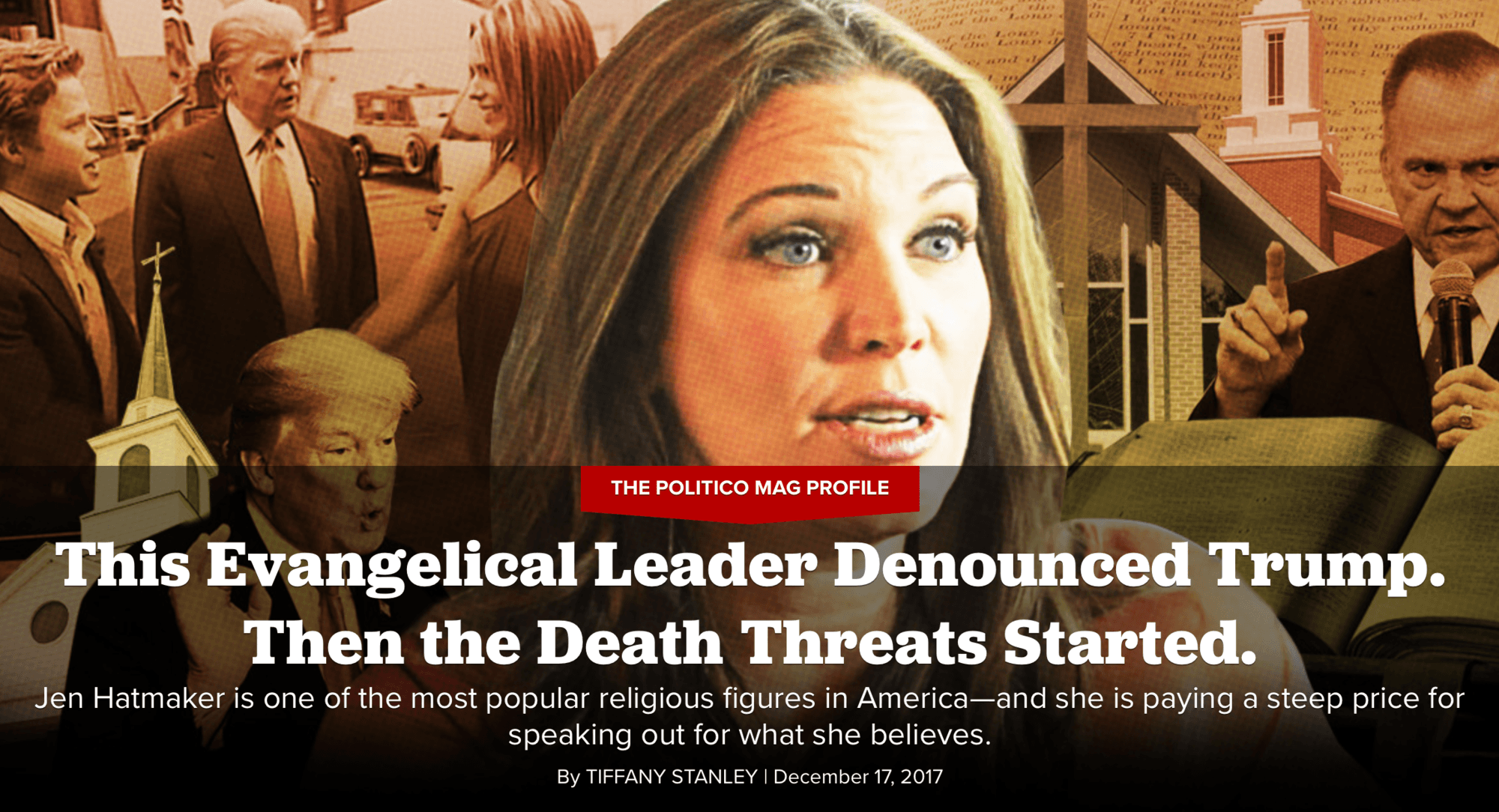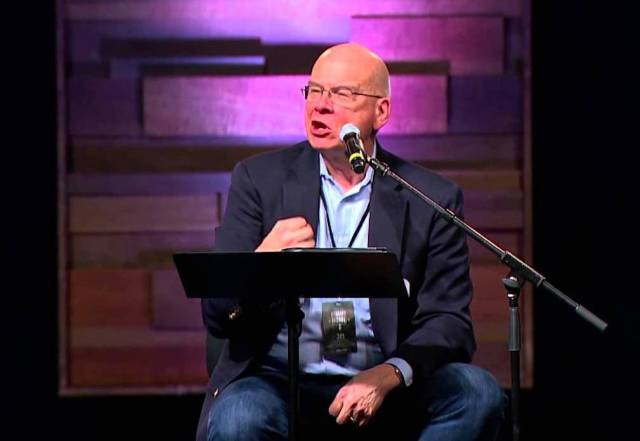Tim Keller – from YouTube

If there’s one thing on which the Trump presidency has shone an uncomfortable spotlight, it’s the white evangelical movement in the US.
Two-thirds of churchgoing white evangelicals have approved of his performance and many of their heavyweight leaders supported him. During 2017, we’ve seen some of those leaders back off despite the existence of his evangelical advisory board which claims to have his ear – a board which endures while other endorsement and advisory bodies disband.
But there is a price to pay.
 Early on, Russell Moore questioned Trump’s approach. The Southern Baptist Convention, where he has a leading role, lost members and financial support as a consequence. Author and speaker Jen Hatmaker received death threats from what she calls the ‘Christian machine’, when she declared herself as Never Trump and spoke in favour of refugees, gun control, and same-sex relationships.
Early on, Russell Moore questioned Trump’s approach. The Southern Baptist Convention, where he has a leading role, lost members and financial support as a consequence. Author and speaker Jen Hatmaker received death threats from what she calls the ‘Christian machine’, when she declared herself as Never Trump and spoke in favour of refugees, gun control, and same-sex relationships.
That may not be why one of the most widely respected conservative pastors and authors, Tim Keller (pictured above), waited until now to comment, as he did this week in the New Yorker but his timing is interesting.
First, the article itself. It serves as an explainer to help people understand the e-word. The etymology has changed rapidly within his own lifetime and he notes some important distinctions. But his explanation is passionate, and acknowledges criticism from the wider public of this increasingly influential group:
“Evangelical” used to denote people who claimed the moral high ground; now, in popular usage, the word is nearly synonymous with “hypocrite”. When I used the word to describe myself in the nineteen-seventies, it meant I was not a fundamentalist. If I use the name today, however, it means to hearers that I am.”
And he pulls no punches:
“People who once called themselves the “Moral Majority” are now seemingly willing to vote for anyone, however immoral, who supports their political positions.”
As Keller notes, the development of the term in public usage is reflected in voter analysis. Exit polls in the US ask voters whether they are ‘a born again or evangelical Christian’. I work for ComRes, which is one of the UK’s leading polling and research agencies, and I can’t imagine the response pollsters would get if they asked that question in Britain…
His article is both a politely feisty take-down of the effect Trump’s regime has had on the reputation of evangelicalism in the US, and an attempt to redeem it by pointing to ‘successful’ evangelical churches which are meeting social needs, and bringing together people from diverse communities. He concludes by suggesting that the word ‘evangelical’ may not be particularly useful in common parlance any more.
But why say this now? He isn’t one to rush into public debate or to engage in highly politicised conversation, preferring to reflect for a while and write a book: Generous Justice outlines his theology of political engagement and social action.
In fact, just a week ago, he was challenged by Christian thought leaders including Rachel Held Evans for tweeting that ‘Jesus didn’t come primarily to solve the economic, political and social problems of our world. He came to forgive our sins.’
People who know him well tell me that it takes a lot for him to write this kind of piece. He is nearly 70 years old, and can look back on a full and fruitful life: establishing and leading large well respected churches, writing books which are read by millions, carving out a space for accessible thoughtful wisdom in an important sector of the church. Surely his legacy is not to be a Never Trump guy, but to pass to future generations the many words and actions of the last seven decades. He is undoubtedly the kind of person who has learnt to pick his battles.
Perhaps that’s the point, though. While Keller, and others like him, might prefer not to be dragged into the polarising debate about Trump, it may be that we’ve reached the point that saying nothing is considered implicit endorsement. It seems that, even in religious communities which don’t always like taking sides, to avoid criticising Trump is perceived to be championing him. And that’s just not tenable any more.










Join the discussion
Join like minded readers that support our journalism by becoming a paid subscriber
To join the discussion in the comments, become a paid subscriber.
Join like minded readers that support our journalism, read unlimited articles and enjoy other subscriber-only benefits.
Subscribe